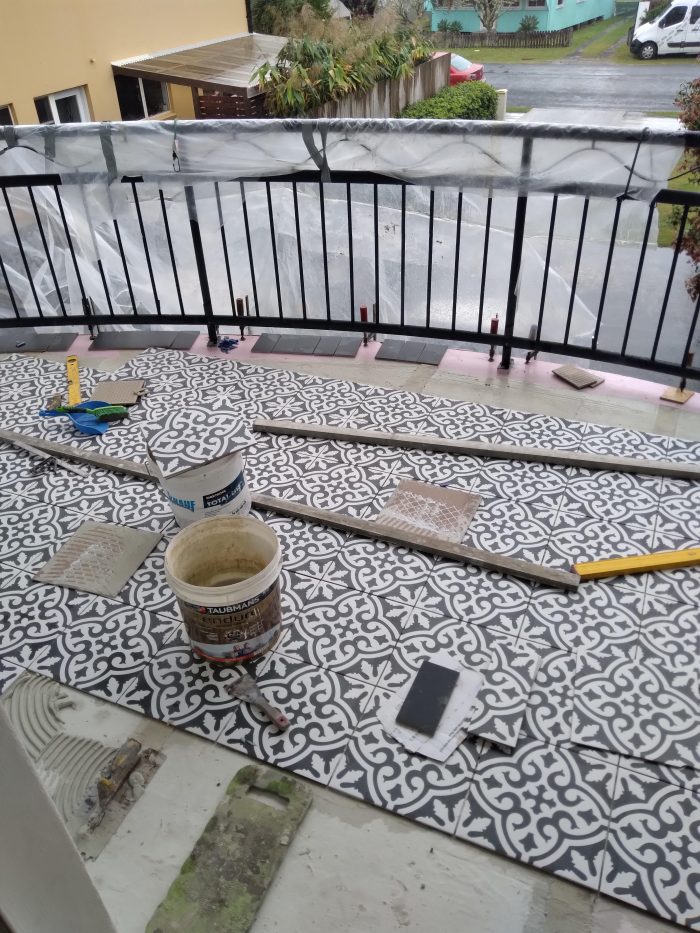An unlicensed tradesman may be very capable of performing the job he is tasked with, and he may have references from past jobs that are very positive; however, this person has not shown a commitment to study or to pay the costs required to be licensed. This may be evidence that their work ethic is not up to scratch. Ask yourself… “Should I entrust large amounts of money to such a person?”
Remember a licence does not guarantee a quality job, or a project finished in a timely manner; however, it does give the home owner help and assurance if something goes wrong.
These Licensing and insurance requirements are in place to protect the consumer. It is also evidence that the contractor has passed the state exam to show they know enough about business and building practice.
If a home owner hires an unlicensed tradesman, they become an employer and the tradesman becomes the employee. Basically, the home owner is the contractor and with that comes all the associated legal and insurance ramifications. This implicates issues such as liability and workers compensation.
The home owner won’t be fined for hiring an unlicensed tradesman as they are not breaking any law; however, they will become legally responsible, not only for the work the unlicensed person does, but for any damage they may cause to their property or to the property of others. Most dangerously the home owner becomes responsible for any injuries that the tradesman, his workers, or his “family members”, might suffer on the job.
Steps to take when gathering quotes:
- Contact the tradesman and inquire about their level of experience
- Follow this link to check on Trade licensing status within NSW: https://verify.licence.nsw.gov.au/home/Trades
- If you feel they are appropriately experienced and licensed and will be able to perform a quality service, you should organise a time for them to come out and inspect the site
- When they arrive at your house immediately ask them to provide their licence number, ABN and if they are covered with insurance.
- If they fail to provide any of those 3 key items do not go further with the quotation, these people are often unskilled, unqualified tradesmen who are trying to make a quick profit at your expense.
- Make sure to explain everything you wish to be done in full and keep this same explanation to repeat to each tradesman who is supplying a quote so you can receive quotes that are for the exact same scope of works.
- Make the choice of tradesmen based upon the quotations given and the feelings you have about each tradesman, make sure you feel comfortable with that person! Remember you are investing a lot of hard earned money into your project and you want to feel safe in handing over money for services
Remember what you’re really gambling with, by employing an unlicensed tradesman… sure you could end up saving a few hundred dollars… but it’s just not worth the risk!
Cash-in-hand Work
Tradesmen can certainly be paid in cash without issue (Cash is a legal form of tender) as long as they provide their client with an invoice and declare the cash paid as income… Put simply, it is illegal for a tradesman to receive payment for work and not declare it as income to the Australian Taxation Office (ATO). If caught, there will be penalties to pay, and these can be harsh. If a tradesman accepts cash-in-hand as a way to increase his income (without the authorities knowing about it) then he is breaking the law. – This includes simple jobs for friends or family members.
There are also important insurance implications that should be considered by both the tradesman and the consumer. As mentioned earlier, it’s important to draw a distinction between a cash job that’s conducted through the correct process and cash-in-hand work done “off the books”. If it’s done off-the-books, insurance companies are likely to reject any claims and won’t cover you… Because after all, the job didn’t even happen in the eyes of the law.
Tradesmen are also leaving themselves open to extortion; where a customer could threaten to report them to the ATO unless any grievances, perceived or otherwise, were meet.
The best and safest policy for all parties, is to ensure that business is performed professionally and “above board”. Pay your share of tax! – it contributes to the maintenance of your schools and hospitals etc.
If trades people wish to increase the amount of money they take home, then they are better served by making the most of their business tax deductions, reducing their business costs, and/or implementing marketing strategies that will generate extra business opportunities for them.

Alstonville Tiles & Floorcoverings recommends that you do not engage trades people on a ‘cash-in-hand’ basis, and that you make sure that the trades-person holds current, and appropriate trade licenses and insurance cover, and that you ask for references!
